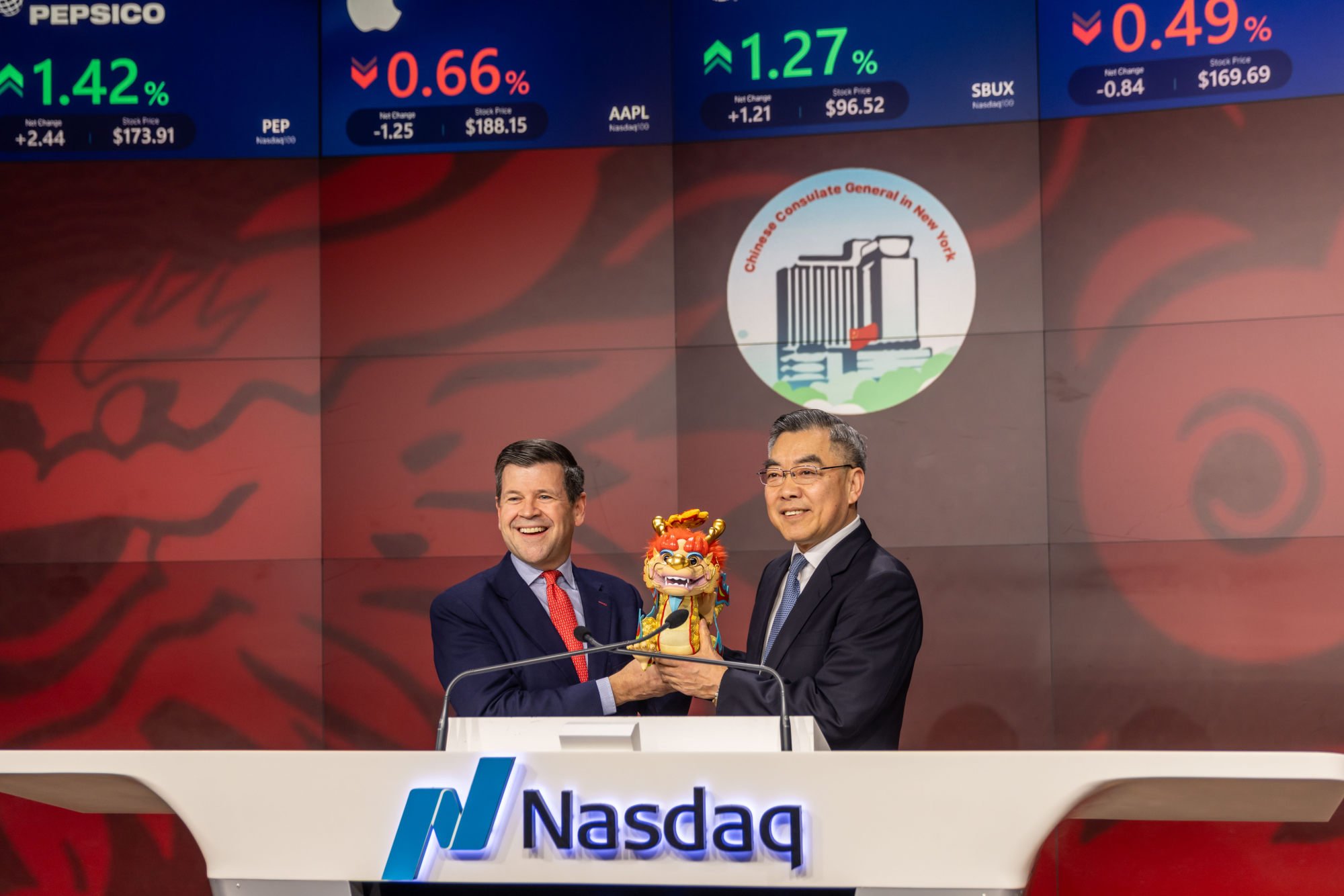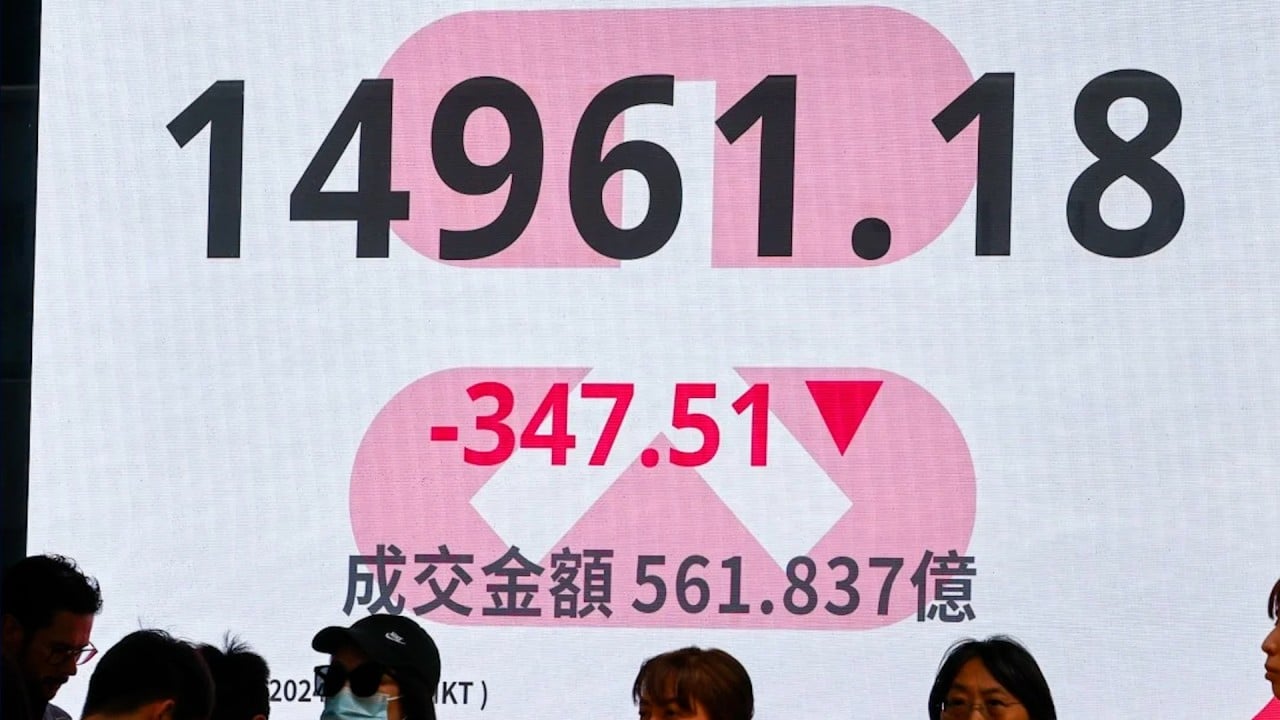Chinese company profits and share prices have fallen sharply, with Chinese and Hong Kong shares ending 2023 down 10 per cent, some of the world’s worst performing equity markets.
Among the risks confronting shareholders in Chinese businesses are limited transparency and the danger they will undercut US national security by purchasing shares in dual-use civilian and military Chinese firms.
“Investors in Chinese companies may support activities that are contrary to US national interests, including the development of technology used for censorship and surveillance and in support of the military,” the report said. “Ostensibly private companies in China are subject to pressure and control by the state.”
Seen as a way for Chinese firms to evade Beijing’s restrictions on foreign stakes in sensitive sectors, particularly internet companies, VIEs have recently come under growing US and Chinese scrutiny. Business-services firm Pinduoduo, consumer company JD.com and technology-firm Alibaba, which owns the South China Morning Post, rely on VIEs.
Market call: Chinese start-ups still crave US investors despite IPO challenges
Market call: Chinese start-ups still crave US investors despite IPO challenges
Last year, the China Securities Regulatory Commission (CSRC) started requiring that all Chinese companies listing abroad gain its approval, no matter their corporate structure.
“China seeks to maintain opportunities for foreign capital raising, but it requires that such endeavors align with its economic and national security priorities,” said Marc Iyeki, head of listings strategy at Green Impact Exchange, which promotes corporate sustainability.
The requirement came after the rideshare company DiDi Global went ahead with an NYSE initial public offering against Beijing’s wishes in 2021 – leading to an embarrassing delisting 11 months later that wiped away US$60 billion – and after Beijing grudgingly agreed following nine years of US requests to let foreign auditors monitor the accounts of firms listed overseas.
“Though the CSRC touted the measures as necessary for enforcing regulatory compliance and preventing fraud, its review process is wide-ranging, including an evaluation of the company’s safeguards against disclosing what the party-state considers as state secrets,” the report found.
The US Security and Exchange Commission has also announced increased scrutiny of VIEs, amid concerns over past scandals and abuses. While other companies use VIEs, Chinese firms have led in using them to secure their core assets.

Over the past year, 24 Chinese companies have listed on US exchanges, raising US$656 million in total capital. During the same period, 11 firms delisted, including China Eastern Airlines and China Southern Airlines, the last two state-owned enterprises (SOEs) with IPOs in North America and worth a combined US$32.3 billion. Many of the voluntary SOE delistings came shortly before or in the wake of the US-Chinese auditing agreement.
Explaining their decisions to withdraw, Chinese state businesses have cited “high administrative burden and costs”. But the commission noted that departures also prevent US regulators from gaining insight into these companies.
US reporting requirements that Chinese SOEs may wish to avoid include: the percentage of shares owned by government entities, the names of each Chinese Communist Party official on the board of directors and whether the company’s articles of incorporation contain any CCP charter.
Analysts said good will is in very short supply in the bilateral relationship. “There’s a fundamental distrust, a fundamental anxiety about strategic intentions on both sides that has just continued to deepen,” said Anna Ashton, China corporate affairs director at Eurasia Group. “The question is, is it going to decline at a controlled rate of speed or is it going to go off a cliff?”
The US commission was created in 2000 to investigate, advise and recommend legislative action to Congress on the national security implications of the US-China trade and economic relationship. Recent hearings have included such topics as China’s role in supply chains, international law, economic coercion and military diplomacy.
Tuesday’s report also cited the possibility that Beijing could backtrack on its agreement to allow audits of Chinese public companies, undercutting transparency.
“The recent compliance comes after years of opacity,” the commission found. “Concerns remain around the continued cooperation by Chinese regulators. Particularly, Chinese regulators could violate the agreement and reintroduce restrictions”, leading to companies’ forced delisting, to the potential detriment of foreign investors.
China stocks slide, US stocks glide – will reform work to stem the tide?
China stocks slide, US stocks glide – will reform work to stem the tide?
The Chinese embassy in Washington said that Beijing opposes attempts to politicise securities regulation. “We have always advocated solving regulatory issues of cross-border listing audit through regulatory cooperation mechanisms,” embassy spokesman Liu Pengyu said.
Investors could also get caught in the US-China geopolitical showdown amid growing restrictions on dual-use Chinese companies, the commission noted. Weibo, the Chinese social-media platform now valued at US$2.4 billion on Nasdaq, “works under government direction to censor posts on its blogging platform and is used by the central and local governments to surveil and censor public protests”.
And Hesai, which raised US$192 million in its Nasdaq IPO a year ago, makes laser sensor systems for autonomous vehicles – “a technology identified by the US military as having extensive battlefield applications” that saw the company barred from Pentagon contracts, according to the commission.
“There’s a lot of regulation coming down on both sides,” said Hinote. “I do think that it’s kind of invest at your own risk.”


